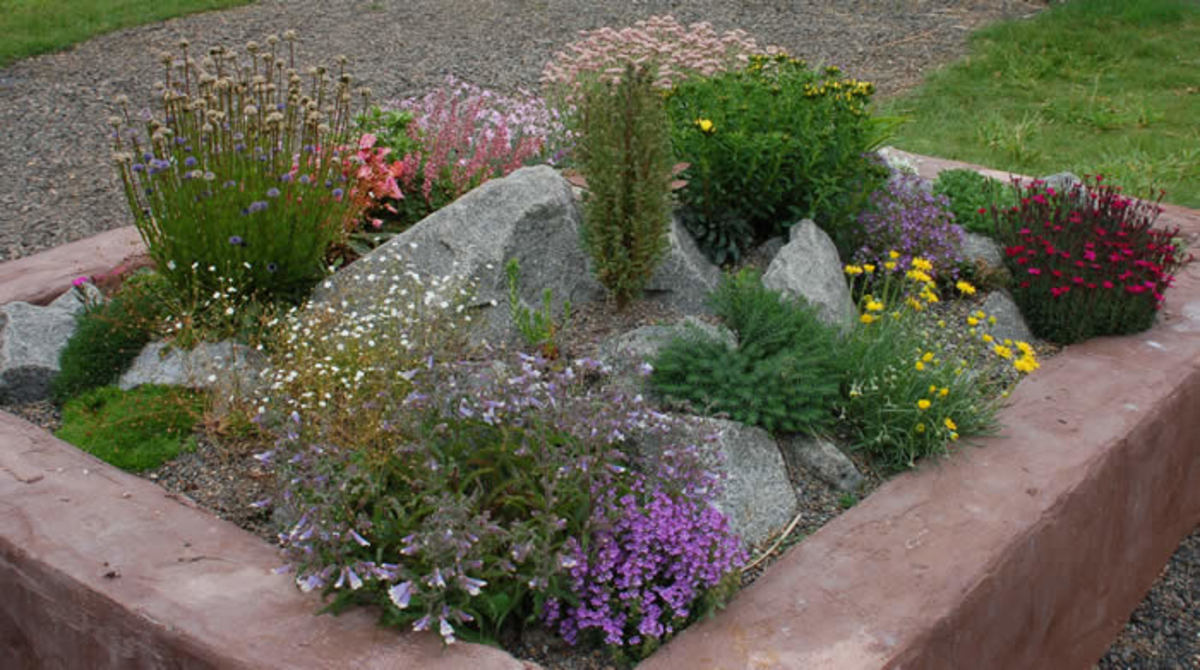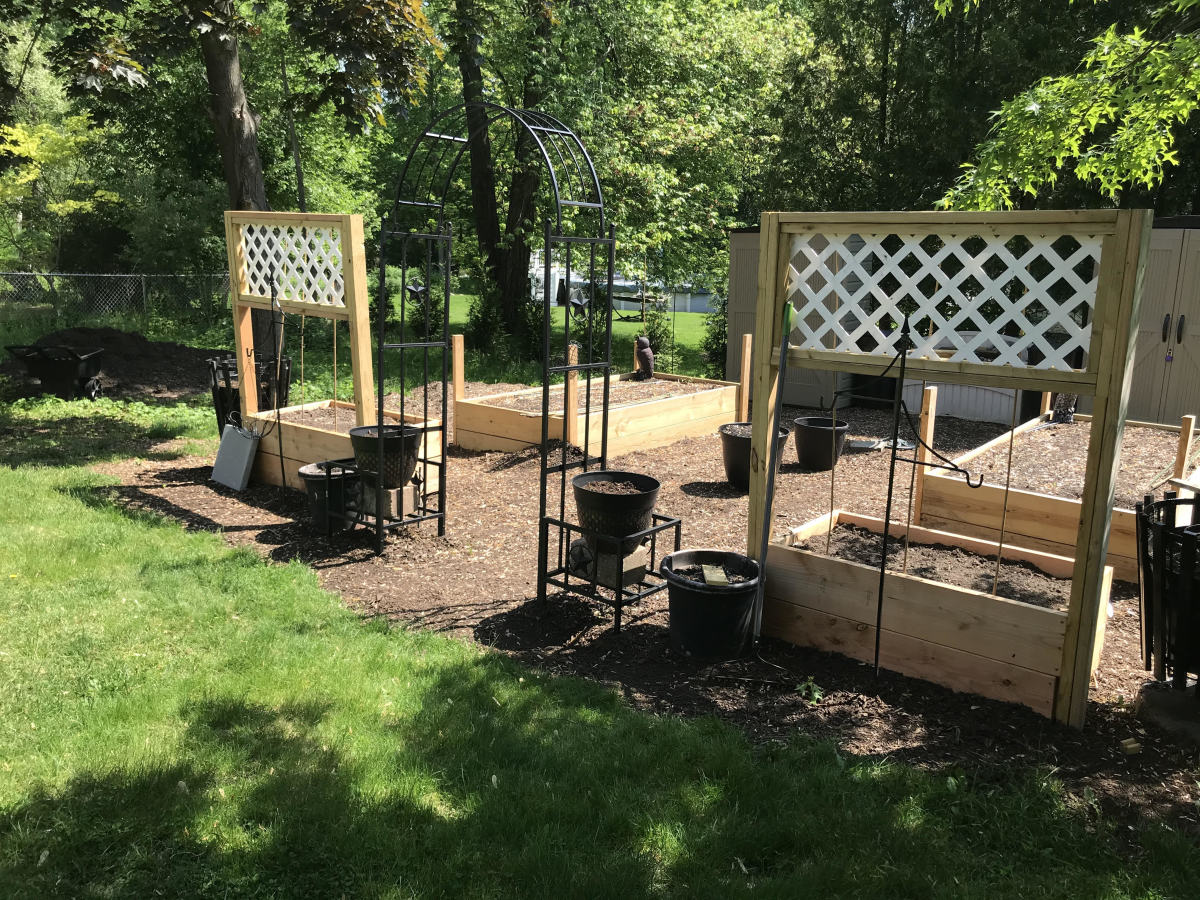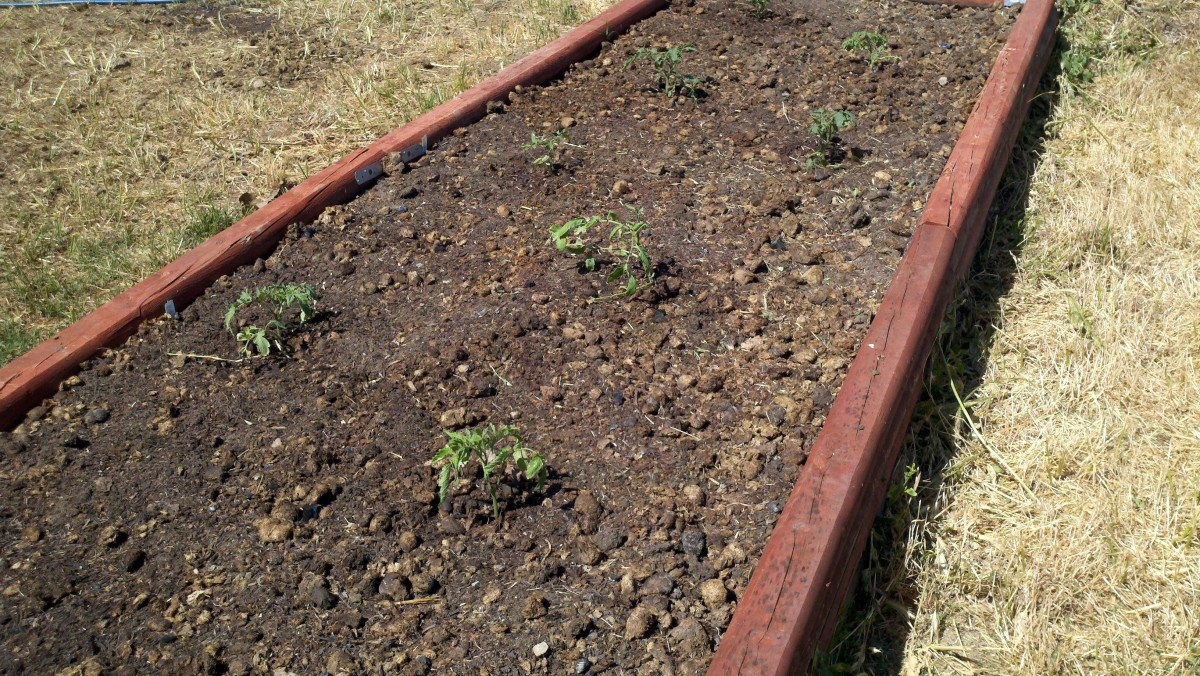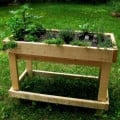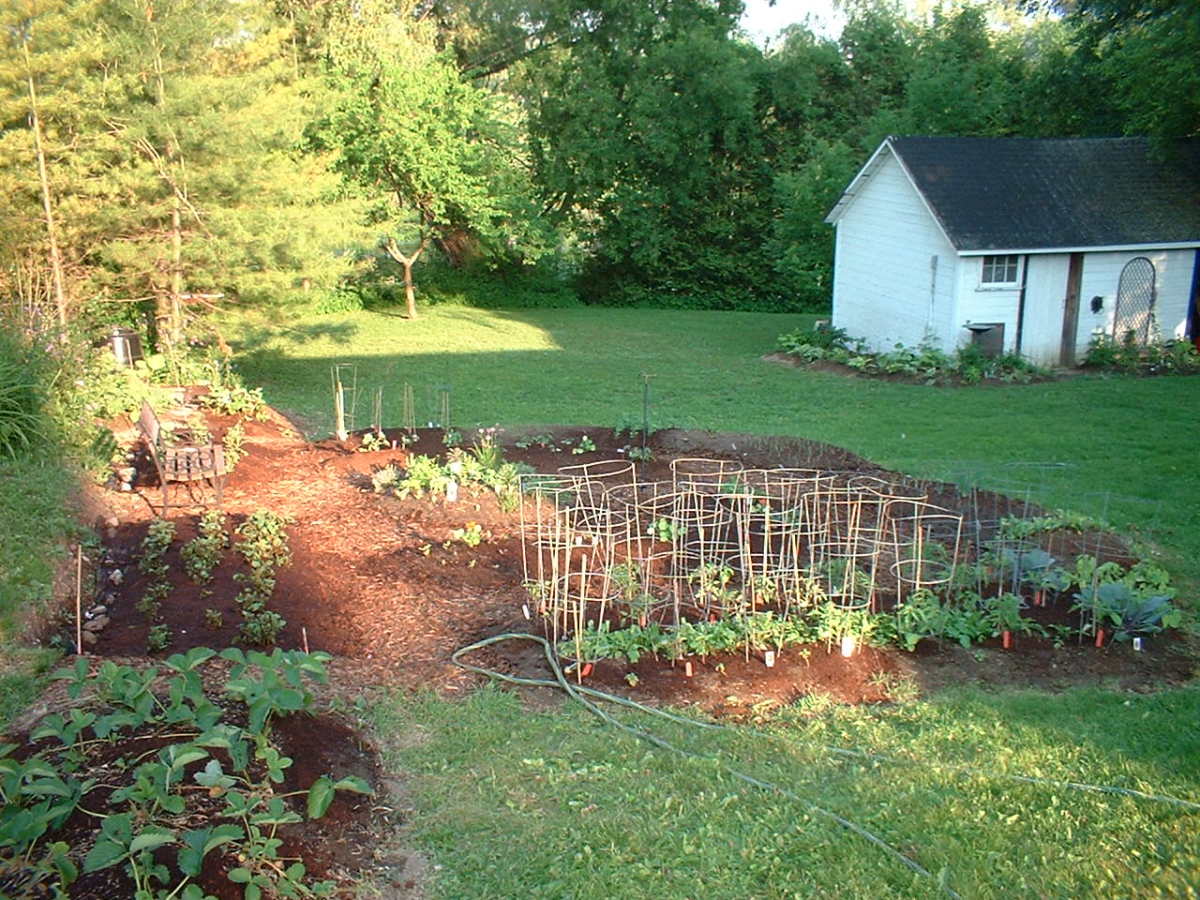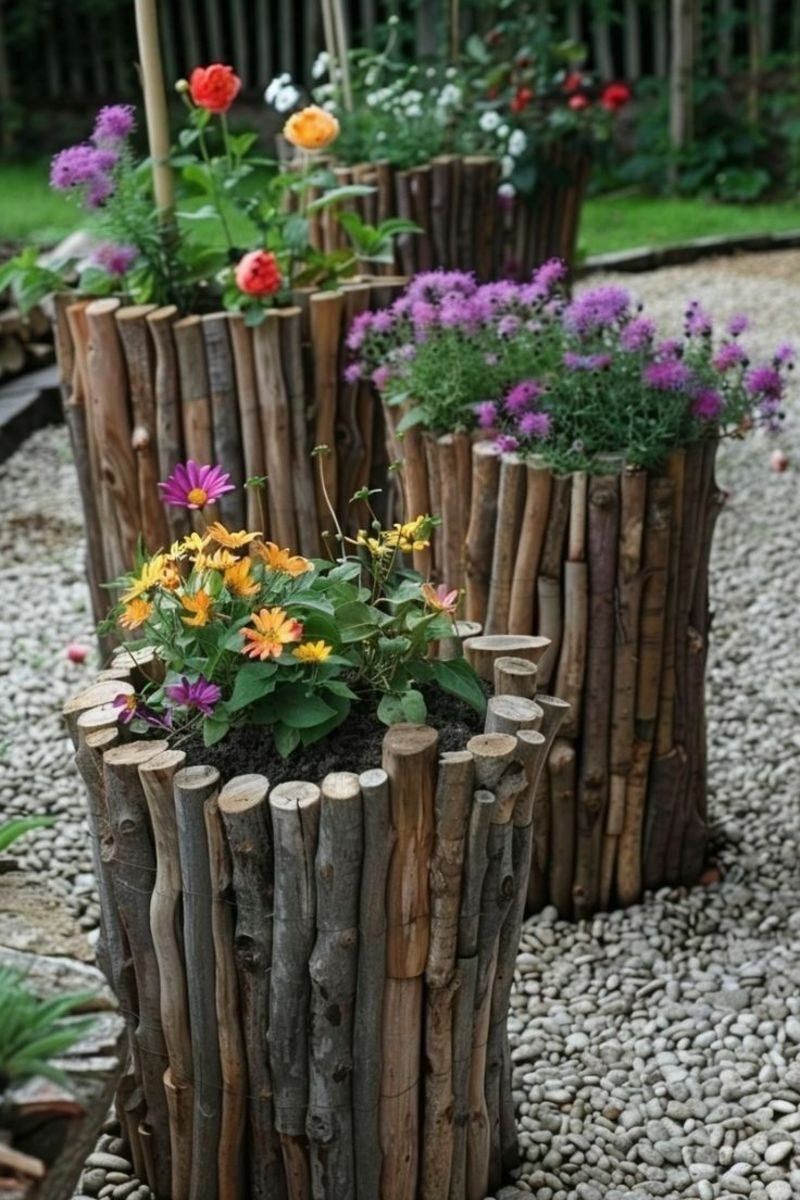Advantages of Raised Bed Gardening
Raised bed gardening offers many advantages over traditional "in the ground" gardening. This simple technique will improve the health and productivity of your garden while bringing the soil up to a comfortable working level. Raised container gardens are perfect for people with limited space, or who have a hard time bending over and kneeling on the ground for traditional gardening.
Build Raised Garden Beds
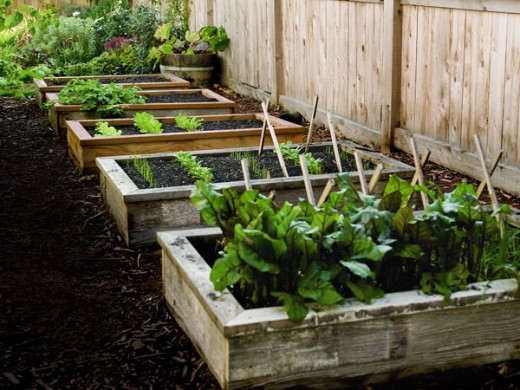
Benefits of Raised Garden Beds
Gardening in raised beds simply means that you grow your plants above the level of the ground. In a raised bed, plants cover the bed areas; gardeners work from the paths.
Benefits of raised bed gardening include:
- Improved plant growing conditions
- bigger harvests
- accessibility
- improved garden pest protection
- water conservation
- ease of soil improvement
How to Make Raised Garden Beds
When creating your raised beds, make them only as wide as can be easily worked from either side. Generally, the beds are constructed 3 to 4 feet wide and elevated between 8 inches and 2 feet. Taller raised beds allow gardening without much bending. Spaces between beds may be left in sod, mulched or even paved with stone or brick. In a vegetable garden, leave enough room for a wheelbarrow.
Wood, brick, rocks, or cement blocks are all popular materials for making a raised bed. Wood is the most common choice, because it is easy to work with and it is inexpensive. The best wood choices are durable materials such as cedar, cypress or redwood. With tall beds made of wood will need supports so that your bed will hold up the weight of the soil. You can use rebar placed into the ground around the edges of the bed to support the wood. My cedar raised beds have lasted a decade, and are still in use.
Simple to Make Raised Beds
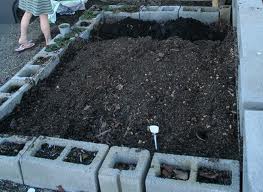
With a raised bed you can basically start from scratch and create the soil environment that best suits the plants you would like to grow. Soil building is an important part of any garden and it's much easier to control that aspect of gardening with raised beds. The bed is a clearly defined area where the gardener can concentrate on soil improvement techniques. Poor soil can be amended or replaced completely in a raised bed, eliminating soil borne diseases or improving the ability to hold moisture. You can fill the bed with your own mix of soil if the natural soil in your area is not that good for gardening.
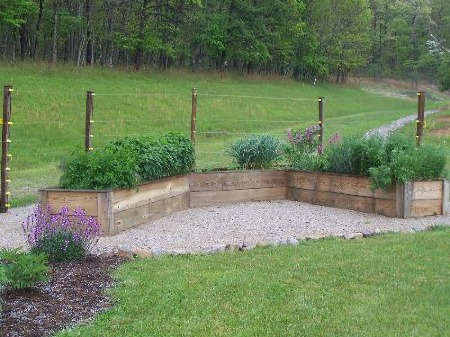
It's important to realize that soil compaction can reduce crop yields up to 50 percent. By eliminating walking on the soil, water and air can more easily penetrate the soil. The basic idea of a raised bed is that instead of battling against poor soil conditions, you build above ground, where you can have absolute control over the soil texture and ingredients.
Soil in raised beds warms faster in the spring compared to ground soil by as much as 15 degrees. It's a simple task to create a mini greenhouse with raised beds, by supporting a tunnel of clear plastic over a bed. Plants may be grown more closely together and thus they will crowd out weeds and shade the soil, reducing evaporation and keeping roots cooler. Fertilizer, compost and manure can be concentrated in the small gardening area, so plants may be spaced closer together. In raised beds, it is easy to control weeds and pests with mulch - plastic, bark, or chips can be used.
Protect a raised garden bed with its own 'greenhouse".
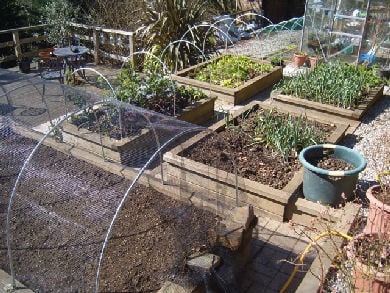
More Reasons to Create Raised Garden Beds
Raised beds elevate plants to a convenient working level, making them easier to tend and enjoy. It also reduces stooping and back strain by bringing plants about a foot closer to you.Raised beds produce a variety of benefits: they extend the planting season; they reduce the need to use poor native soil; and they can reduce weeds and some pests if designed properly.
Gardening can be a great activity for individuals with disabilities, with some consideration to the special needs of the gardener. Raised bed gardening, space efficient and attractive, presents a secure and valuable area for your plants, vegetables, and flowers to thrive.


